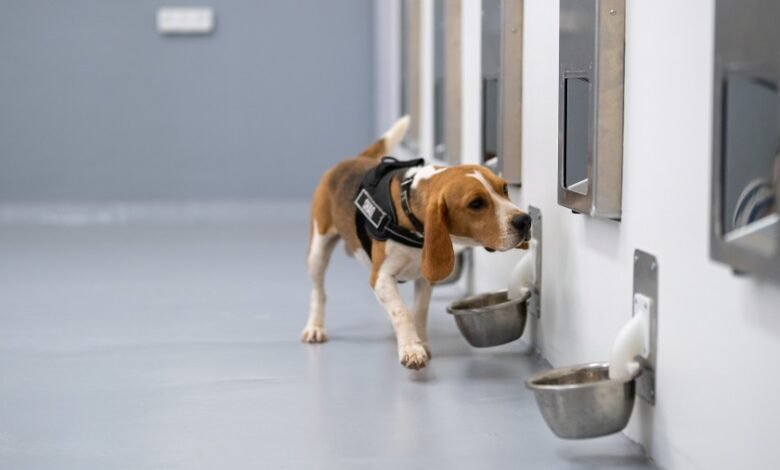SpotitEarly Uses Dogs and AI to Detect Common Cancers

▼ Summary
– Early cancer detection is crucial for saving lives, with multi-cancer screening tests like Galleri and whole-body MRIs currently available for consumers paying out-of-pocket.
– SpotitEarly is developing an at-home cancer test that uses trained beagles to analyze breath samples for cancer-specific odors, validated by an AI platform.
– The company’s research in Scientific Reports showed 94% accuracy in detecting early breast, colorectal, prostate, and lung cancers in a double-blind study of 1,400 people.
– SpotitEarly plans to launch in the U.S. market with $20.3 million in funding, aiming to offer tests for around $250 each and make multi-cancer panels more affordable than competitors.
– The company treats its dogs as valued team members, ensuring they have play space and companionship, and will make screening kits available through a physician network next year.
Early detection remains the cornerstone of successful cancer treatment, offering the best chance for positive outcomes. While multi-cancer early detection (MCED) tests are still under investigation and not yet FDA-approved, options like the Galleri blood test or full-body MRI scans from providers such as Prenuvo and Ezra are available for those willing to cover the cost, which can exceed $2,000.
A novel approach is emerging that could soon provide consumers with a different method for multi-cancer screening.
SpotitEarly, a biotech participant in the Startup Battlefield at TechCrunch Disrupt 2025, is creating an at-home test that analyzes a person’s breath. This innovative method leverages the extraordinary olfactory abilities of dogs, supported by artificial intelligence, to identify cancer markers.
According to CEO Shlomi Madar, scientific evidence continues to build showing that dogs can be trained to detect human diseases, with a particular focus on cancer. He notes that many people have shared personal stories about their own pets acting unusually before a cancer diagnosis was confirmed.
Madar, drawing on his 15-year background in health and biotech, partnered with three colleagues, one a former K9 unit commander, to create a dependable technology for cancer screening via breath analysis.
The process for users is straightforward. They collect a breath sample at home and send it to the SpotitEarly laboratory. There, a team of 18 specially trained beagles goes to work. These dogs are taught to sit when they identify the scent markers associated with cancer. To ensure precision, the company’s AI platform monitors and validates the dogs’ behavioral signals.
The system uses cameras, microphones to record breathing patterns, and heart rate monitors for each dog. Madar explains that the machine learning algorithm establishes a baseline for the entire pack, making the process more accurate than relying solely on a human handler’s observation.
Research published in Nature’s Scientific Reports demonstrated that the trained dogs achieved a 94% accuracy rate in detecting early-stage cancer from breath samples. This double-blind clinical study, which involved 1,400 participants, targeted the four most prevalent cancers: breast, colorectal, prostate, and lung.
Originally founded in Israel in 2020, SpotitEarly announced its U.S. market entry in May, backed by $20.3 million in funding from investors including Hanaco VC, Menomedin VC, former Timberland CEO Jeff Swartz, and Wix.com CEO Avishai Abrahami.
The new capital will be used to expand clinical trials significantly. The plan is to begin with a dedicated breast cancer test before developing screens for the other three cancer types.
Madar stated that the at-home screening kits are expected to be available to consumers through a physician network next year. The estimated price for a single cancer test is around $250, with additional cancer screenings priced lower. The company’s goal is to make a multi-cancer panel more affordable than competitors, specifically aiming to undercut the approximate $950 cost of the Galleri test.
The dogs are considered integral members of the team. Madar emphasizes that all employees must be “dog people,” clarifying that the animals are not treated merely as biosensors. They have ample space for play and are valued as both excellent workers and beloved companions.
(Source: TechCrunch)
